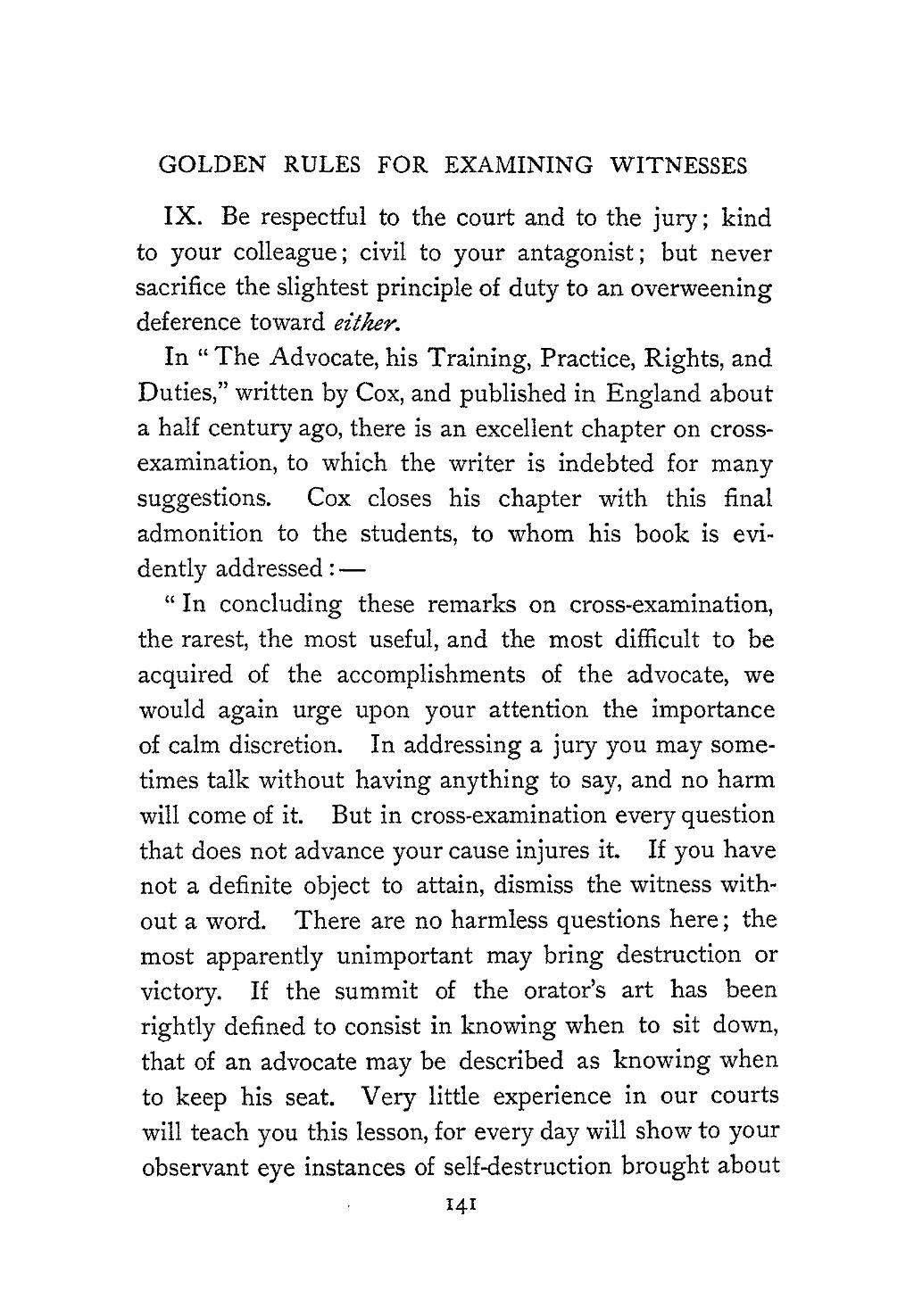GOLDEN RULES FOR EXAMINING WITNESSES
IX. Be respectful to the court and to the jury; kind to your colleague; civil to your antagonist; but never sacrifice the slightest principle of duty to an overweening deference toward either.
In "The Advocate, his Training, Practice, Rights, and Duties," written by Cox, and published in England about a half century ago, there is an excellent chapter on cross-examination, to which the writer is indebted for many suggestions. Cox closes his chapter with this final admonition to the students, to whom his book is evidently addressed:—
"In concluding these remarks on cross-examination, the rarest, the most useful, and the most difficult to be acquired of the accomplishments of the advocate, we would again urge upon your attention the importance of calm discretion. In addressing a jury you may sometimes talk without having anything to say, and no harm will come of it. But in cross-examination every question that does not advance your cause injures it. If you have not a definite object to attain, dismiss the witness without a word. There are no harmless questions here; the most apparently unimportant may bring destruction or victory. If the summit of the orator's art has been rightly defined to consist in knowing when to sit down, that of an advocate may be described as knowing when to keep his seat. Very little experience in our courts will teach you this lesson, for every day will show to your observant eye instances of self-destruction brought about
141
